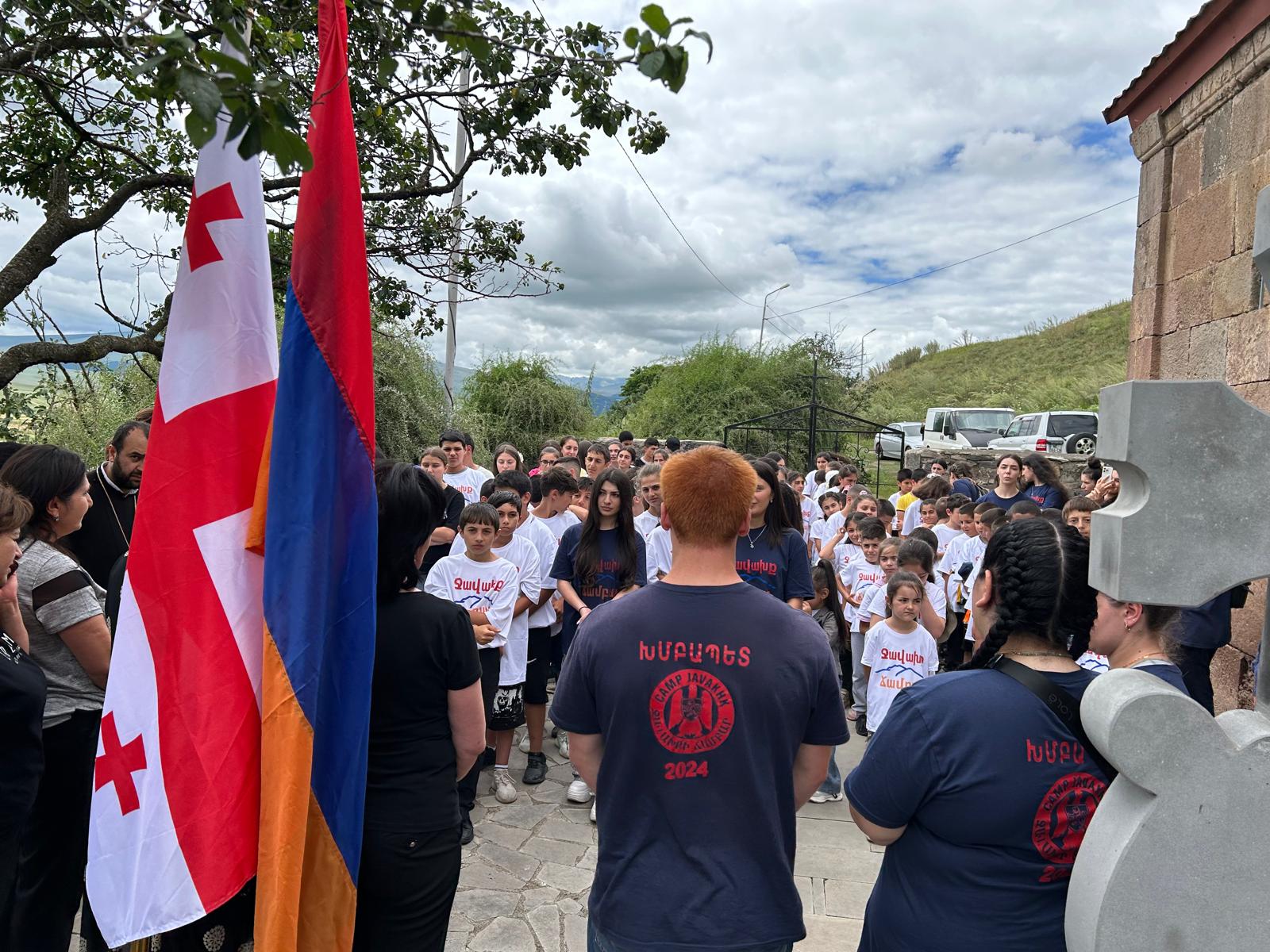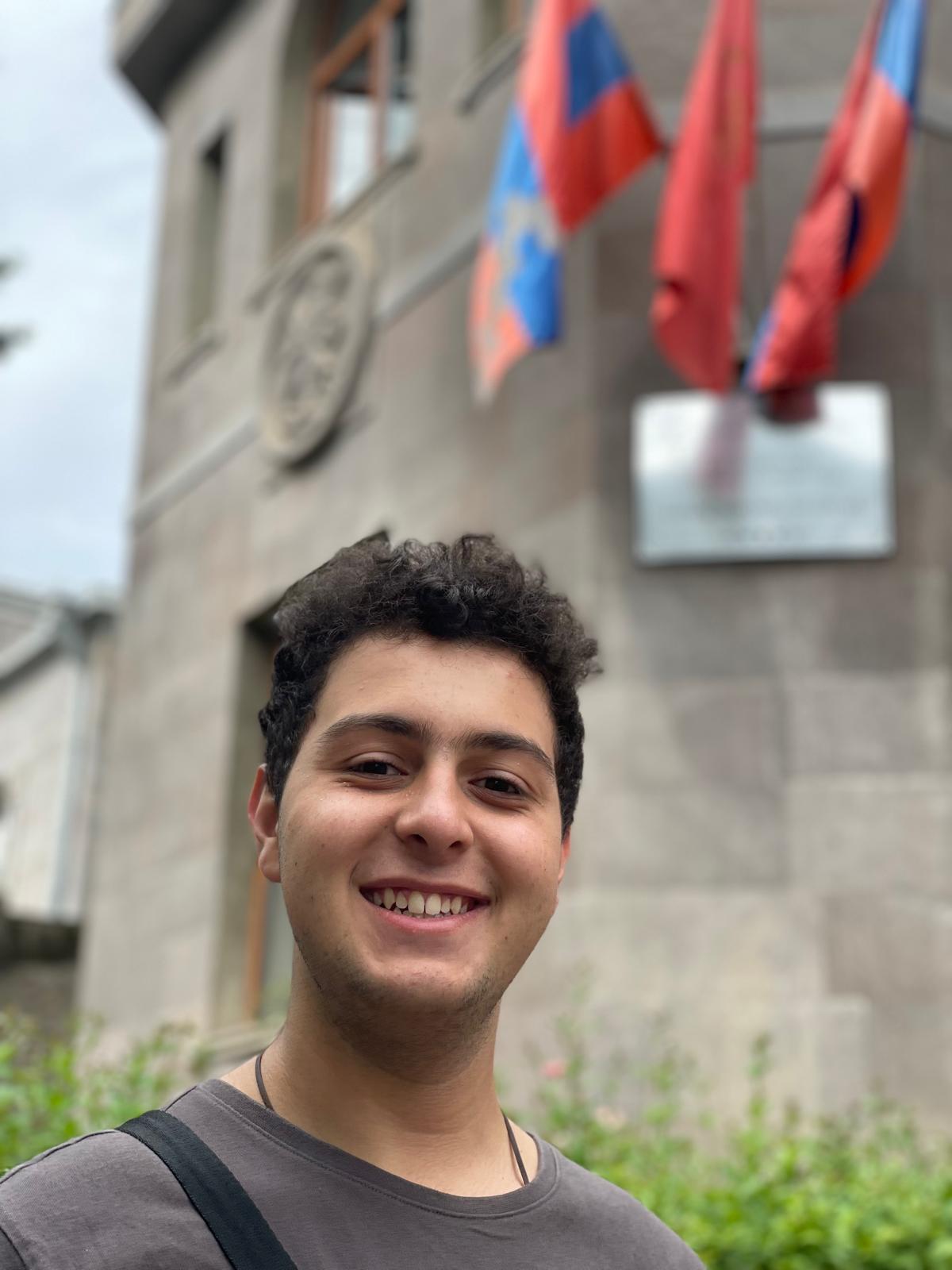Javakhk, nestled north of Armenia, remains home to a vibrant Armenian community. An integral part of the ideal of a united Armenia, it played host to the Armenian Relief Society (ARS) “Camp Javakhk” in its 12th iteration.
This program aims to inspire Armenian youth in the region between the ages of 8 and 16, educating them about their culture and language. It serves as a beacon for young Armenians living in the diaspora who participate in the program as counselors, many of whom are also members of the Armenian Youth Federation.
Camp counselors pass on their knowledge to campers, while the campers unwittingly provide a sense of hope and pride to the counselors by showcasing their passion for Armenian culture and tradition, while living in a lesser-known part of the homeland.
Participating for a second time, my journey began in the city of Akhaltskha, roughly an hour drive from Akhalkalak and the location of one of the two camps taking place during week one of the program. Upon arriving and meeting with the members of the local ARS chapter, we settled in for the night, staying in the house of a local Armenian family who graciously gave up their home for a week.
After a morning trip to the local outdoor market to stock up on supplies for the week, Camp Javakhk 2024 officially began! As the campers slowly arrived, the camp venue, which sat atop a hill overlooking the city, filled with life, laughter and excitement. A small opening ceremony took place, with the local Armenian priest and ARS representative making their remarks and offering their thanks.
Once the formalities concluded, it was all hands to action stations to hand out t-shirts and folders containing all the educational material for the week to the more than 100 participants. Children were split into three groups based on their age. Each group was led by a leader with counselors and local Armenian youth assisting each team, totalling around 5-7 people per group.
A debrief session took place with the local youth every day after closing to discuss improvements and the agenda for the following day. Over the five days we were in Akhaltskha, different educational topics were delivered, ranging from Armenian poetry to hygiene, geography and Armenian history. We played games and taught songs and dances. On the final day a concert was held for parents of campers, and we said our goodbyes and left for Akhalkalak.
Once in Akhalkalak at the local Armenian center, some counselors left for Yerevan while other new faces arrived. After grabbing a quick bite, together with some Akhalkalak locals, we walked to a bridge not too far from the city center where we took in the view. Then half the group went to Ninotsminda for the night, while the rest of us stayed in Akhalkalak.
In the morning we met up with our group and went to a canyon in the Tsalka region. As the main tourist site was closed, we walked toward a church nearby, which, from what we could see on the map, appeared to have a good view of the canyon. We walked through some tall grass to reach the church but got caught in the rain, although we enjoyed a pretty view nonetheless.
Back on our bus, we made a short trip to a village called Darakyugh. Upon our arrival, the heavens opened up. Tip-toeing around the countless puddles on the dirt driveway and walking under a waterfall at the front gate caused by the conveniently placed down-pipe, we managed to get all our belongings and supplies for week two into the house of the family we would stay with, albeit slightly soaked.
With everything moved upstairs to our part of the house, we decided on the agenda for the next day and had an early night. On Monday morning, after a short walk to the village hall, we met the kids and prepared for the official opening, which would take place at the church. Members of the ARS of Javakhk were present. After a prayer and blessing from the priest, we moved outside, discussing the importance of Camp Javakhk with parents and campers.

We passed out shirts and folders, and everyone was split into their groups, with the same agenda items delivered from the previous week. On the last day, a concert was held for the parents, before we left for Ninotsminda then off to Yerevan.
Just like that, the 12th year of Camp Javakhk concluded. Along with my fellow counselors, I left with a small sense of pride, hoping that I’d left a lasting impression on the children and broader Armenian community of our lesser-known homeland, letting them know that they haven’t and will not be forgotten.
For centuries on end, our people have been brought to their knees, by the enemy and by our own. But in the same way that we constructed a republic from the ashes of a genocide, and in the same way we reached the mountains of Shushi, we will bring our homeland together again. From Tavush today, to Syunik and Artsakh, to Javakhk, Western Armenia and Nakhichevan, our homeland will unite. For this is the only way to guarantee the future of our compatriots in Javakhk, Armenia and around the world.
I hope that the hundreds of campers we had the privilege to serve now have the same fire lit within them — the fire that moves us toward a united Armenia.



I would caution on the use of irredentist language concerning Javakhk. Fortunately, the Armenians in Georgia can nurture their language, culture, religion and education, and don’t suffer from overt discrimination, let alone persecution from Georgian officialdom. Georgia and Armenia today have good relations, despite the complications and incidents in the recent past and now defunct mutual land claims, conflicts and wars in the more distant past. Georgia is strategically very important for Armenia, as its land access to the open seas and to the rest of the world. Armenia cannot risk alienating and losing Georgia, if claims of Javakhk come into the picture, even by private citizens or NGOs. Concern for the rights and wellbeing for the Armenians of Javakhk and in the rest of Georgia, and addressing them, is a legitimate right of Armenia, but any irredentist talk is dangerous, first of all for the Armenians living there.
When the ethnic conflicts started with the breakup of the Soviet Union and the reignition of the suppressed nationalisms of the ethnic groups, including in Georgia vis-a-vis Abkhazia and South Ossetia, Georgians, Abkhazians and Ossetians suffered massacres and ethnic cleansings, the ramifications which continue up to this day. Fortunately, the Armenians of Javakhk, who diligently remained neutral or loyal, were not sucked into the ethnic conflicts and wars of Georgia, and were literally spared from that horrible fate. Armenia cannot jeopardize its relations with Georgia, which would only result in Georgia becoming a hostile Azerbaijan 2.0, and in the ethnic cleansing of all Armenians from Javakhk and from the rest of Georgia. Georgia is already on the verge of authoritarianism and might reconcile with Putin’s Russia, and in this shi##y neigborhood surrounded by two hostile genocidal neighbors, Armenia must maintain good relations with both Georgia and Iran.